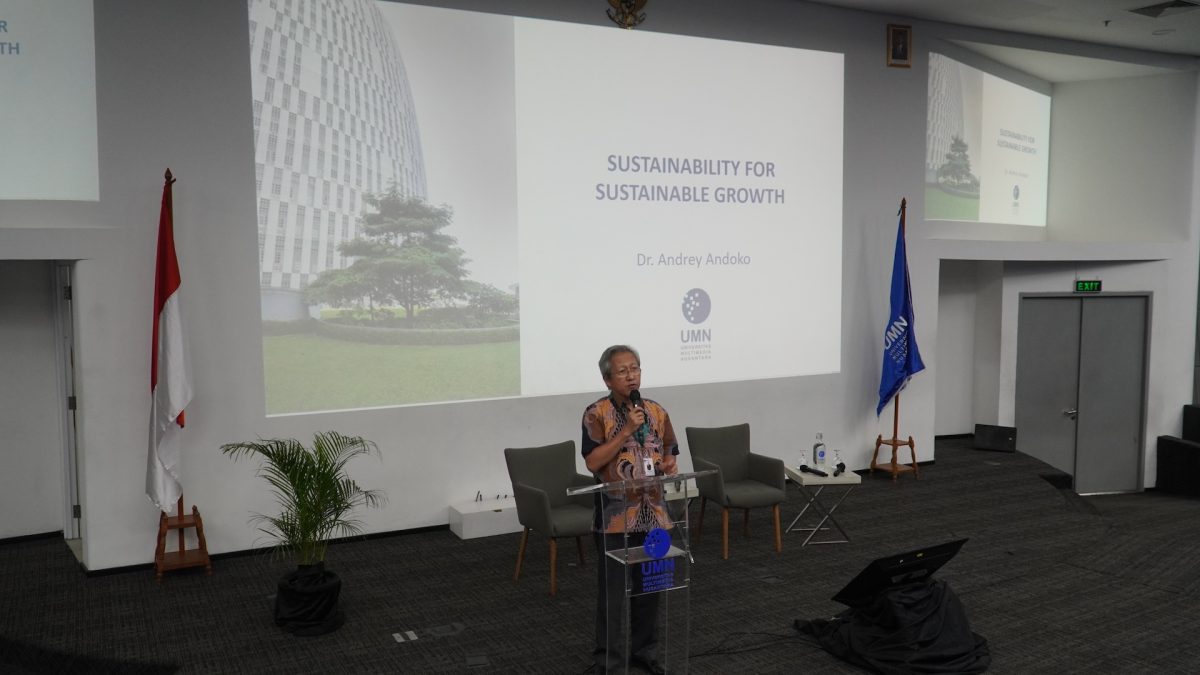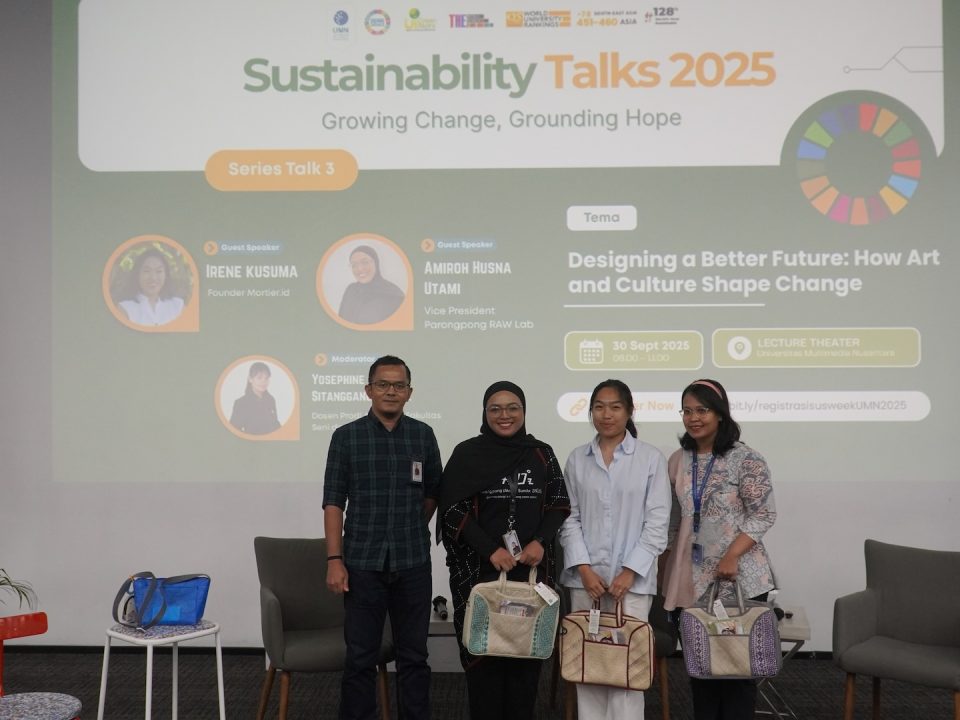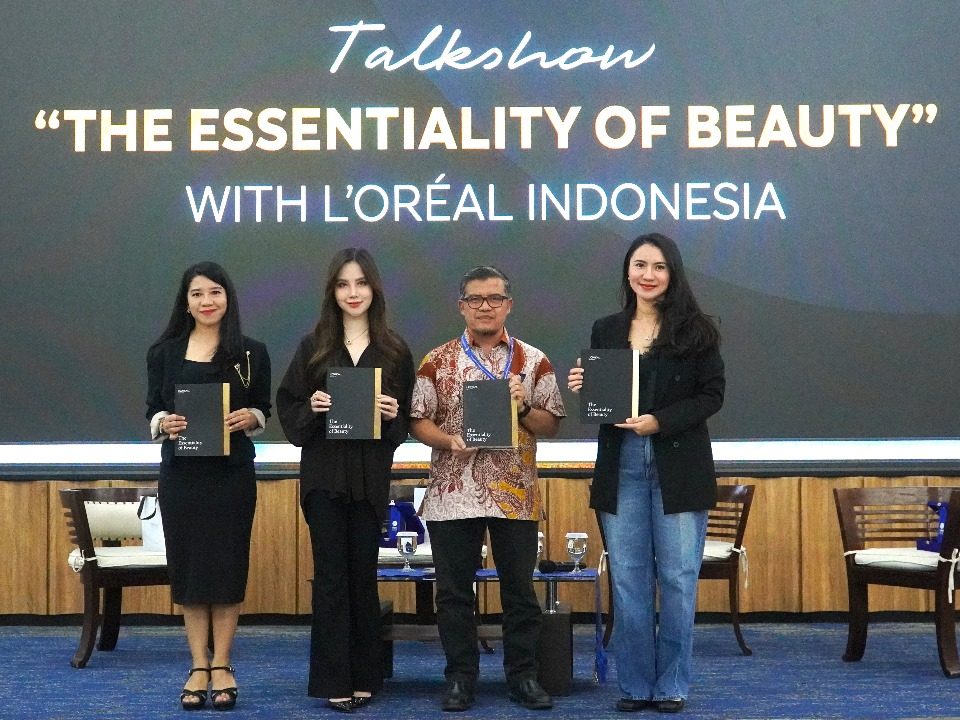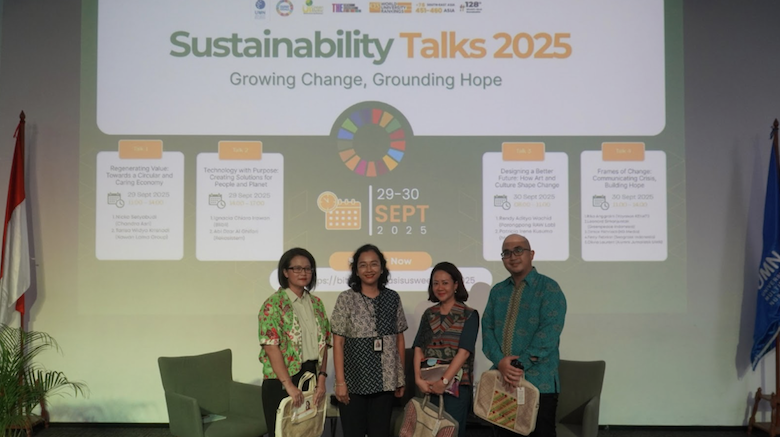
UMN Communications Faculty Conducts Beauty Talkshow with L’Oréal Indonesia
September 30, 2025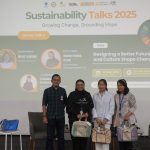
Sustainability Talk: The Role of Sustainable Design for The Future
October 3, 2025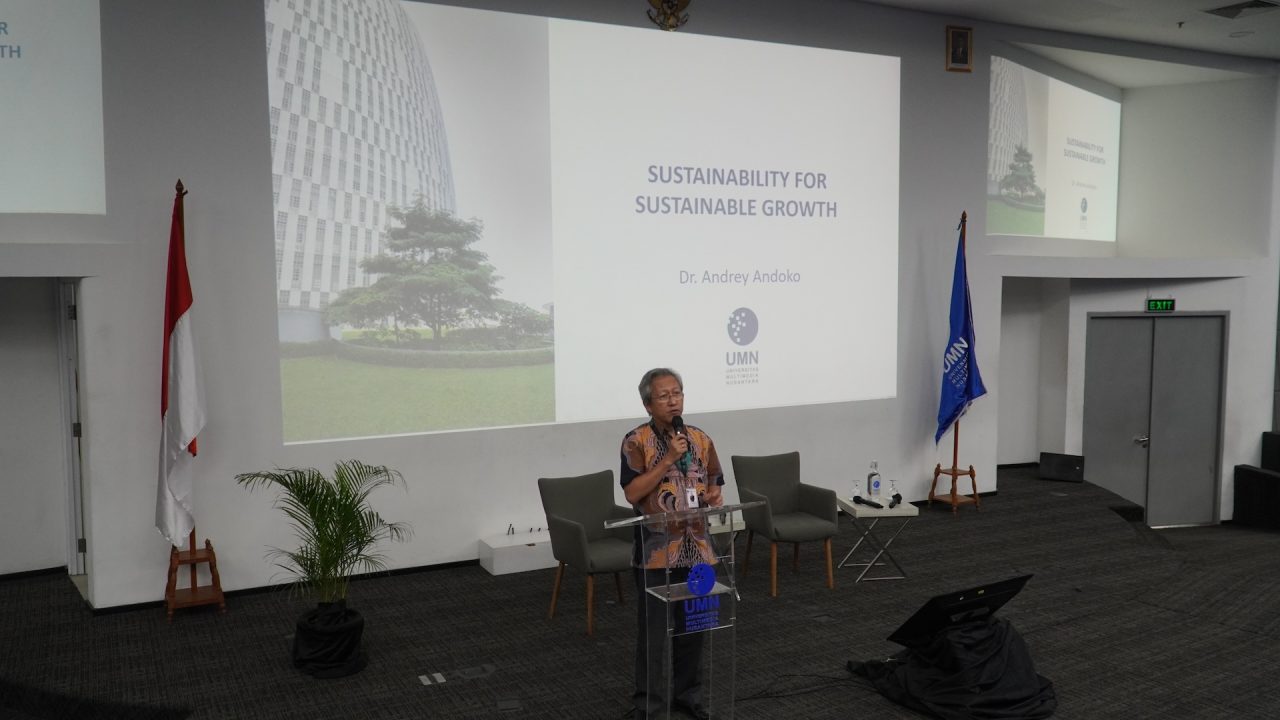
The highlight of UMN Sustainability Week 2025. (Doc. UMN)
Tangerang, Tuesday (September 30, 2025) – Universitas Multimedia Nusantara (UMN), as part of Sustainability Week, held a Sustainability Talk with Andrey Andoko, M.Sc., Ph.D., UMN Rector, and Rachman Kurniawan as Manager of Environmental Development Pillar, Secretariat of Sustainable Development Goals, National Secretariat for SDGs, Ministry of National Development Planning/Bappenas. With the theme “Reclaiming Sustainability Beyond 2030 Targets,” this event was not only intended to educate about sustainability but also as a concrete step and action towards achieving the Sustainable Development Goals by 2030.
As a form of Universitas Multimedia Nusantara’s commitment to making a real contribution to environmental, social, and economic aspects, UMN organized Sustainability Week. The UMN Sustainability Center initiated this event as one of the concrete actions in implementing and supporting the achievement of the 2030 Sustainable Development Goals. Sustainability Week includes various activities, such as the Banten Youth Research Competition, Mangrove Planting, and Sustainability Talk, all of which are designed to encourage awareness and active participation of the UMN academic community in sustainable development.
Read more here: https://www.umn.ac.id/berita/
The Sustainability Talk event involved four faculties at UMN, each with relevant topics from their respective faculties, and served as the culmination of Sustainability Week 2025. This event not only involved the UMN academic community but also industry and government representatives. The Sustainability Talk was led by Dr. Andrey Andoko, UMN Rector, and Rachman Kurniawan, Manager of Environmental Development, Secretariat of Sustainable Development Goals, Ministry of National Development Planning/Bappenas.
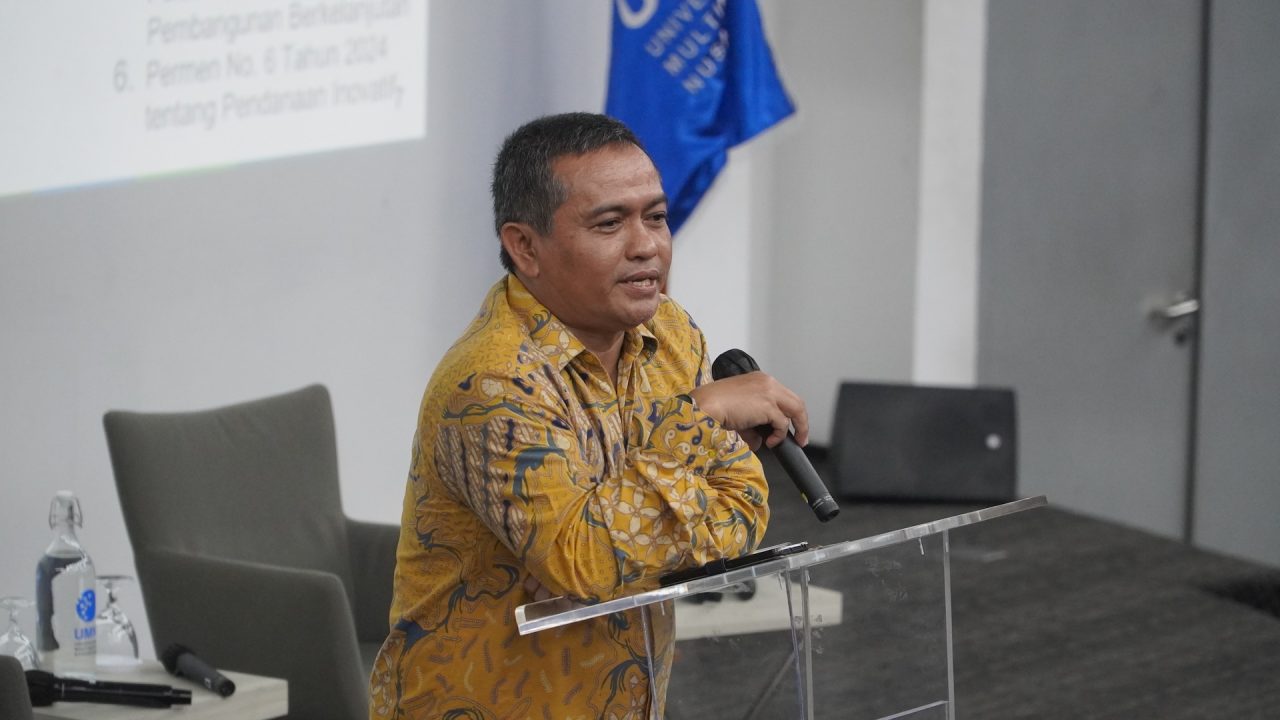
Rachman Kurniawan delivering his presentation at the UMN 2025 Sustainability Talk. (Doc. UMN)
“The current global challenges are increasingly complex. The current world situation is not only related to the climate but also other dimensions, ranging from social, environmental, and economic aspects. The geopolitical situation is also not good, and this has caused many people around the world to ignore sustainability issues. Sustainability issues have been promoted in Indonesia since 2010, starting from the Millennium Development Goals to the current Sustainable Development Goals,” Rachman said.
Rachman explained the United Nations’ idea of a “People Planetary Crisis,” in which more and more people are unaware of the accelerating climate change, which includes air pollution, loss of biodiversity, competition for natural resources, and various other crises. If this continues to go unnoticed, it will destroy and damage the Earth.
“In the SDGs, there are 17 points that are on the agenda for 2030. If we look deeper, there are 169 targets and 207 indicators, and this is a global agreement. Indonesia has 299 indicators, which is certainly more because it is tailored to Indonesia, and of course, Indonesia is still far from perfect. Based on data from 2024, Indonesia has achieved 60%, but there is still much we need to do,” Rachman explained.
Although there are still many targets and indicators that Indonesia needs to achieve, Rachman expressed his pride in the increasingly broad collaboration to support sustainability in Indonesia, ranging from industry, government, philanthropy, and higher education. For Rachman, meeting the SDG targets requires broad collaboration.
“Higher education institutions are very supportive, starting from research and expert resources that are found in higher education institutions. In Indonesia alone, there are 68 higher education institutions that have formed Sustainability Centers spread across 25 provinces. The highest concentration is in Java, which means that our fellow higher education institutions need to collaborate with regions in Indonesia that do not yet have Sustainability Centers, especially in Eastern Indonesia,” Rachman said.
Rachman advised that industry, government, and universities must continue to monitor the progress of the SDGs. Although the results are not linear and there is still much work to be done, this is a sign that the closer we get to good results, the more complex it will be, and we must continue to innovate in ways that have a positive impact on sustainability.
UMN’s Role in Achieving the Sustainability Development Goals
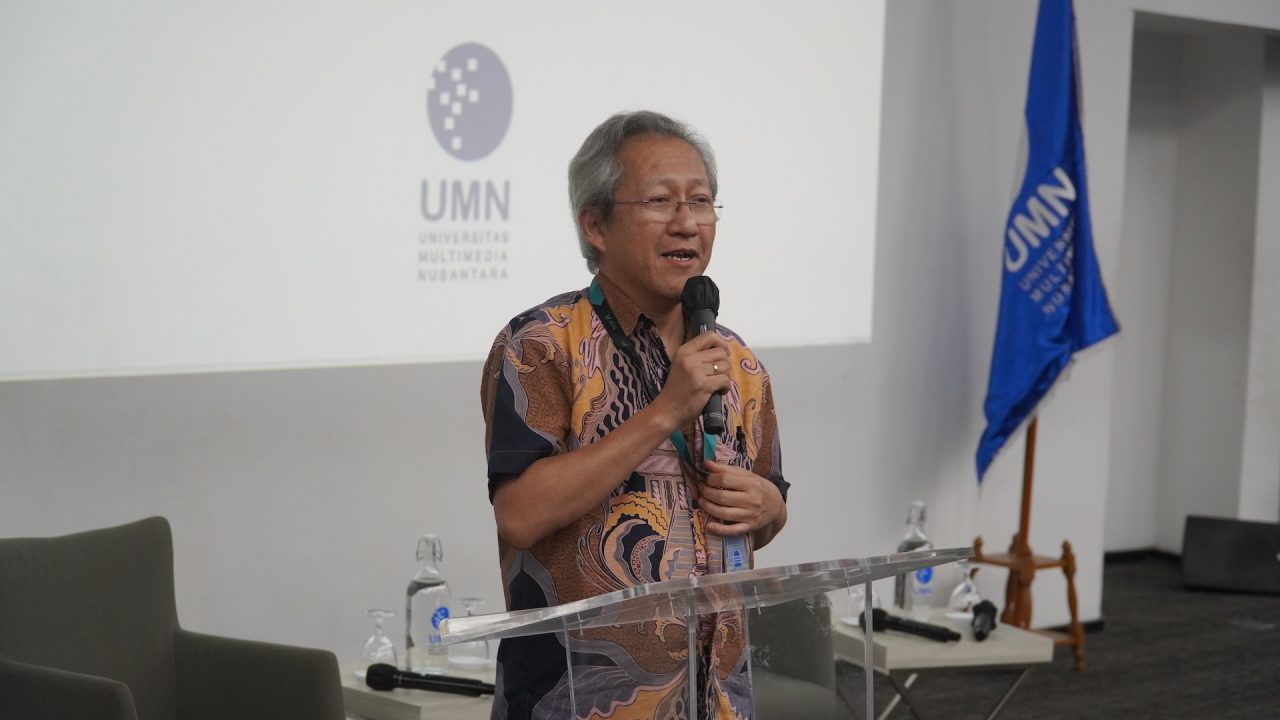
Andrey Andoko presenting material at the UMN 2025 Sustainability Talk. (Doc. UMN)
“From the beginning, UMN has promoted the concept of environmental friendliness and energy efficiency, but now the issue of sustainability has become important. As a university, UMN can do many things, starting from the curriculum with the SDGs framework, the use of environmentally friendly energy, waste management, and various other sustainable matters,” Andrey Andoko explained in the Sustainability Talk event.
Sustainability is UMN’s commitment, as evidenced by UMN’s position in the UI Green Metric, which ranks 19th in Indonesia and 128th globally. Of course, UMN will continue to implement various solutions to support sustainability, ranging from infrastructure, transportation, waste management, and various other ways to continue supporting the SDGs.
“The UMN Sustainability Center was created to realize the SDGs in a more formal campus setting. As a policy maker, integrating all academic, non-academic, and research activities must have SDG points. This also applies to internal and external stakeholders who have an interest in realizing sustainability, therefore we continue to collaborate with various industries and institutions,” Andrey added.
All of these activities are in line with the pillars of the UMN Sustainability Center CORE (Curriculum, Operations, Research, and Engagement). Of course, with CORE, the SDGs can be realized for the entire UMN academic community. It will also contribute significantly in the long term.
“UMN’s goal in emphasizing sustainability is, of course, to increase the awareness of lecturers, employees, and students about this issue. The most important thing is that UMN can equip students with green skills, so that after they graduate, they can work in industry, meet future needs, and create a livable earth and become catalysts for sustainability,” Andrey said
Furthermore, UMN will continue to realize these SDG values and seek solutions to issues that still need improvement. UMN will also continue to educate the entire UMN academic community about sustainability. In the future, UMN is expected to become the most sustainable private university in Indonesia and create a reputation that an impacts society.
By Rachel Tiffany | UMN News Service
English translation by Levina Chrestella Theodora
Kuliah di Jakarta untuk jurusan program studi Informatika| Sistem Informasi | Teknik Komputer | Teknik Elektro | Teknik Fisika | Akuntansi | Manajemen| Komunikasi Strategis | Jurnalistik | Desain Komunikasi Visual | Film dan Animasi | Arsitektur | D3 Perhotelan , di Universitas Multimedia Nusantara.

